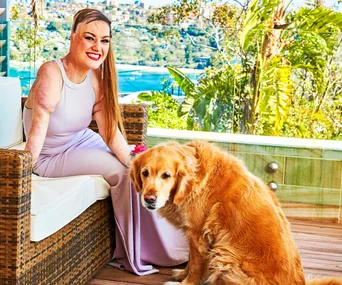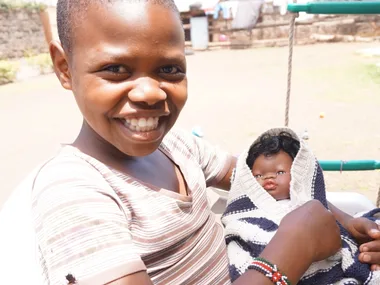After nine finalists were selected from hundreds of entrants, their work and projects were assessed by a passionate judging panel that included the likes of Julie Bishop, Ita Buttrose, Lisa Wilkinson and Ronni Kahn.
After heavy discussion, the votes were cast and tallied, with the winners announced yesterday at at a special lunch event in Circular Quay.
Prominent politicians, businesswomen and media personnel gathered to celebrate the nine fantastic finalists and their work, and to congratulate the three winners.
These three truly exceptional young women will receive $70,000 each in cash and prizes to further their important work, changing breast cancer treatment, the fashion industry and supporting young carers.
And the winners are…
Courtney Holm
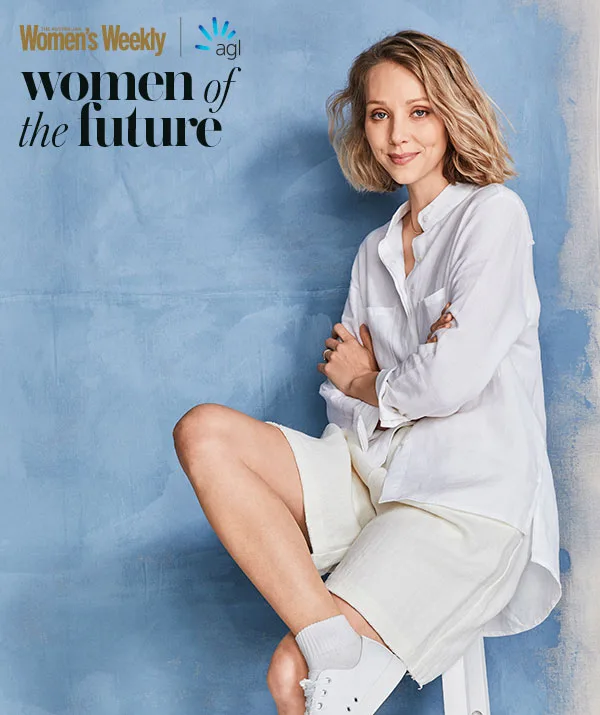
33, from Geelong, Victoria
Designer Courtney Holm is tackling waste in fashion from all angles. Her label, A.BCH sources its raw materials from ethical suppliers, and educates customers on how to be responsible for their garments.
Her recent collection, presented at Helsinki Fashion Week, was entirely circular.
“Every piece is made for longevity, is repairable and every raw material down to the buttons, dyes and threads can be safely composted or, thanks to a new research project that I have just begun, mechanically recycled at the end of its life to create new yarns that can be made into new garments,” Courtney says.
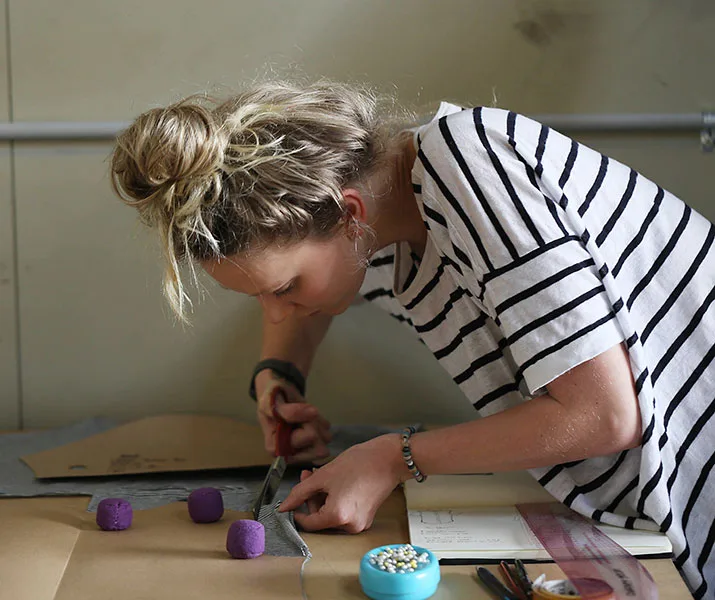
All clothing for Courtney’s label A.BCH is made locally in Melbourne from renewable, organic and recycled materials. The clothing can be returned and recycled once used.
(Credit: Photo provided by Courtney Holm)The recycling project, Waste Work, is the second facet of her mission. Courtney is working with a mill in Tasmania to reconstitute off-cuts and returned garments into new yarns.
Her dream is to work with the broader industry to encourage other manufacturers to recycle their scraps.
“Basically we’re taking old things, wasted things, and turning them into new yarns,” she says.
Courtney is also teaching customers what they can do to help. “At A.BCH we are just getting started with the customer when they’re making that purchase,” she says.
Madeleine Buchner
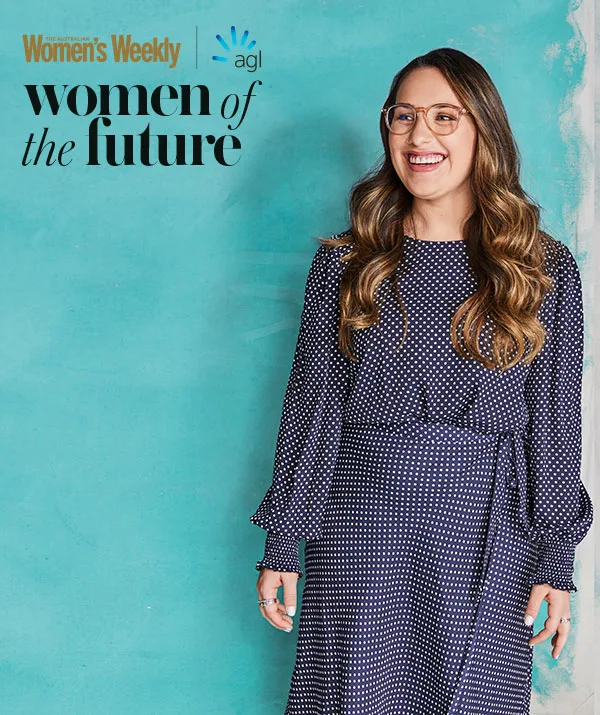
26, from Melbourne, Victoria
By the time she was six years old, Madeleine Buchner could manage her little brother’s medicine and monitor his breathing. At nine, she realised there was a lack of support for young people who helped care for family members and she started the Carenet Kids Club to raise money to fund sibling support programs.
She had always known her family dynamic was different than most, but she never registered the fact that she needed and deserved support.
“I felt because my brother was sick, I had no right to crave attention,” Madeleine says.
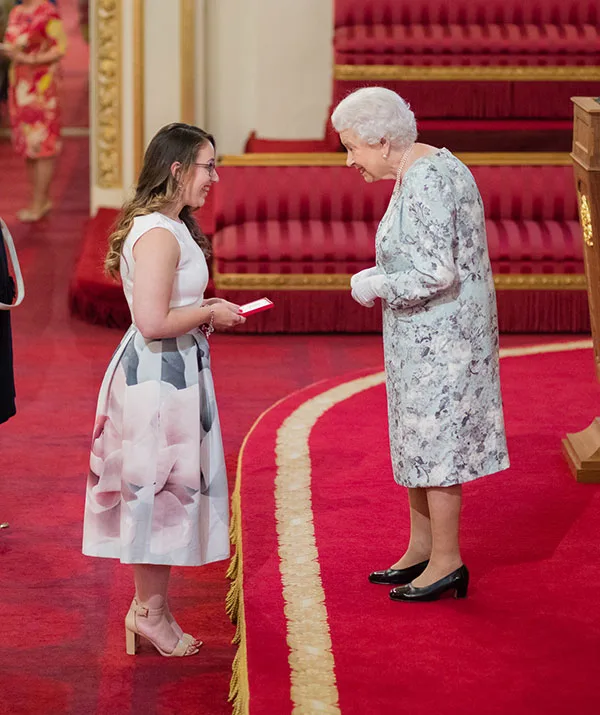
Madeleine’s work lead to her meeting her majesty Queen Elizabeth II in 2017, as a Queen’s Young Leaders Award recipient.
(Credit: Photo provided by Madeleine Buchner)When she was 15, Madeleine’s mother was diagnosed with breast cancer. Her responsibilities increased and she realised she wanted to do more for other young people like her.
She launched Little Dreamers Australia, the country’s only non-profit organisation supporting young carers. Little Dreamers now has a staff of 12 and runs programs for 3000 young carers nationally, while also campaigning and raising awareness.
“We filled a gap in Australia’s health care system that never should have existed in the first place,” Madeleine says.
“I want young people in this position to know that they’re not alone and their emotions are completely valid. They deserve support too.”
Macinley Butson
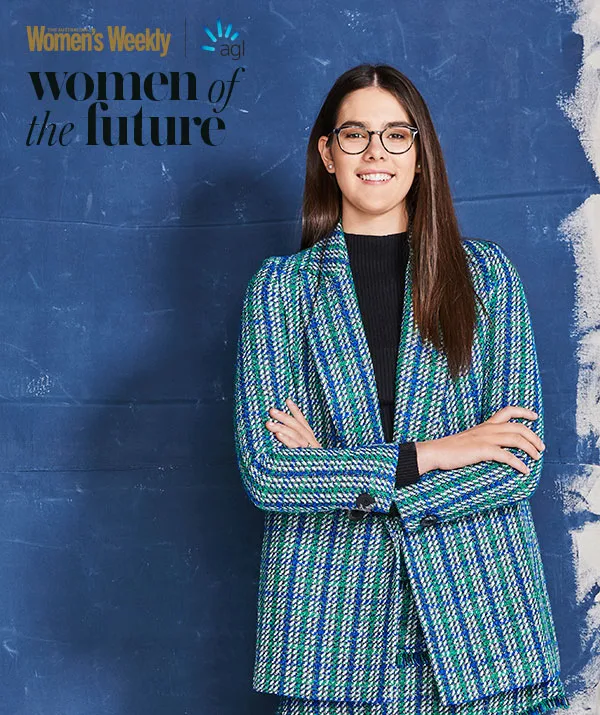
18, from Wollongong, NSW
Macinley Butson never thought her inventions would go beyond her backyard, but when she found herself testing her SMART Armour invention at a Sydney hospital, she realised she was onto something big.
The SMART stands for Scale Maille Armour for Radiation Therapy, and the armour is a clever and elegant invention Macinley came up with to reduce the amount of radiation breast cancer patients undergoing radiotherapy absorb in their non cancer-affected breast.
The genesis of Macinley’s project was a conversation with her medical physicist father, who told her one in 14 women with breast cancer undergoing radiotherapy treatment will develop cancer in their other breast. Macinley had been a passionate inventor since she was little, and the issue with radiotherapy treatment got her thinking.
She began testing different shielding metals and discovered copper was more effective than lead at the skin surface. She came up with the design for the armour while learning about medieval armies in history class.
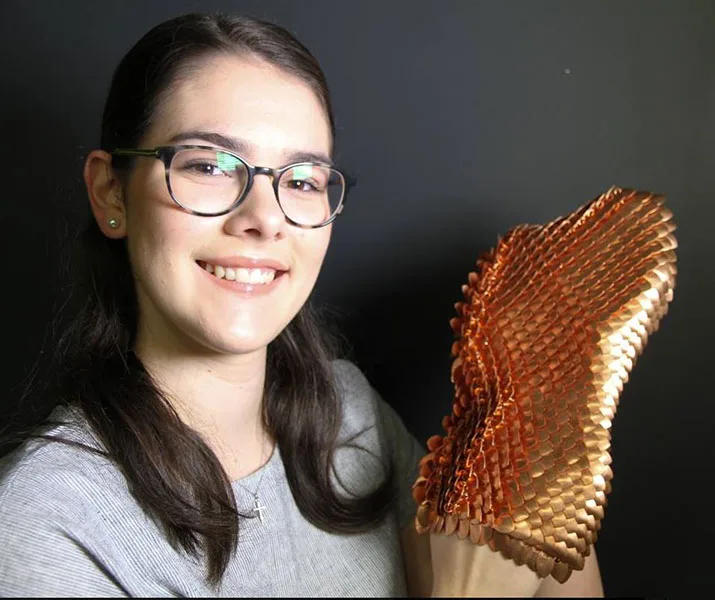
Macinley’s SMART Armour was inspired by medieval chain mail armour. It is laid over the healthy breast during treatment to prevent radiation from affecting the breast.
(Credit: Photo by Macinley Butson)In the three years since that dinner table conversation, the SMART Armour has been patented and approved by the Therapeutic Goods Administration.
“Being able to provide each patient with the protection of the SMART Armour and empowering them through their battle with cancer would be the greatest blessing,” she says. Macinley’s invention has already been recognised with several awards.
Since graduating from high school she has established a start-up and will complete university part-time so she can dedicate herself to her dream of getting the SMART Armour into hospitals all over the country.
“My goal is to have the SMART Armour being used in radiotherapy clinics around Australia and eventually around the world,” Macinley says.
Read more about this year’s Women of the Future finalists in this month’s issue of The Australian Women’s Weekly, on sale now.
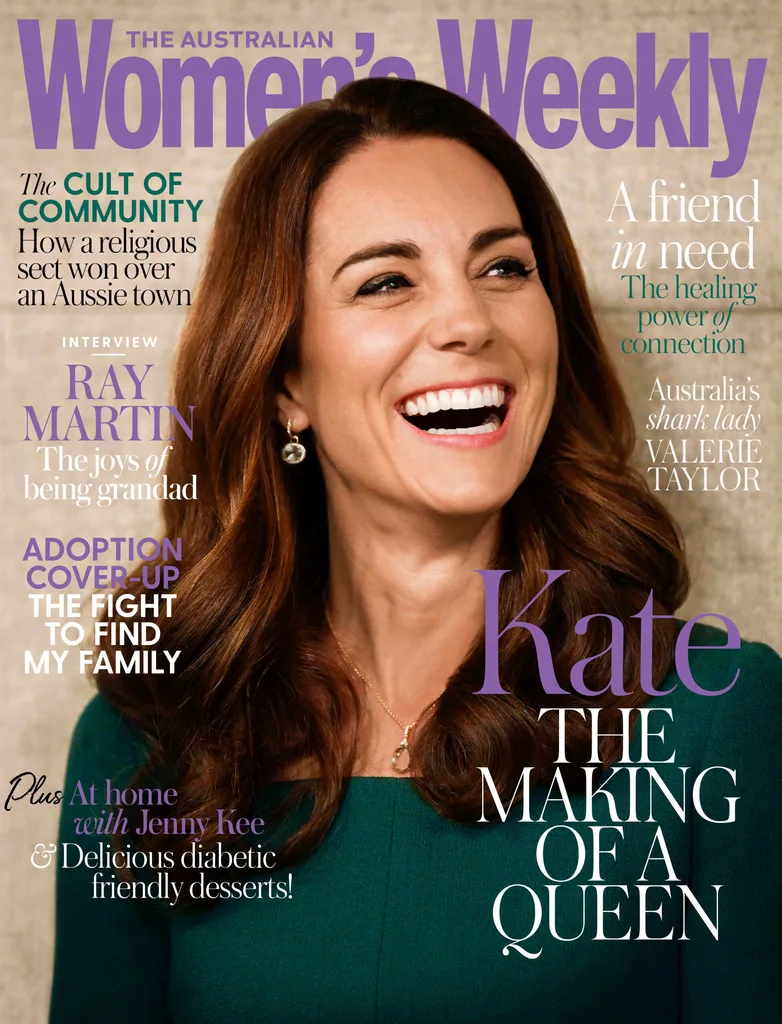
Duchess Catherine on the cover of the October issue of AWW.
(Credit: AWW)
